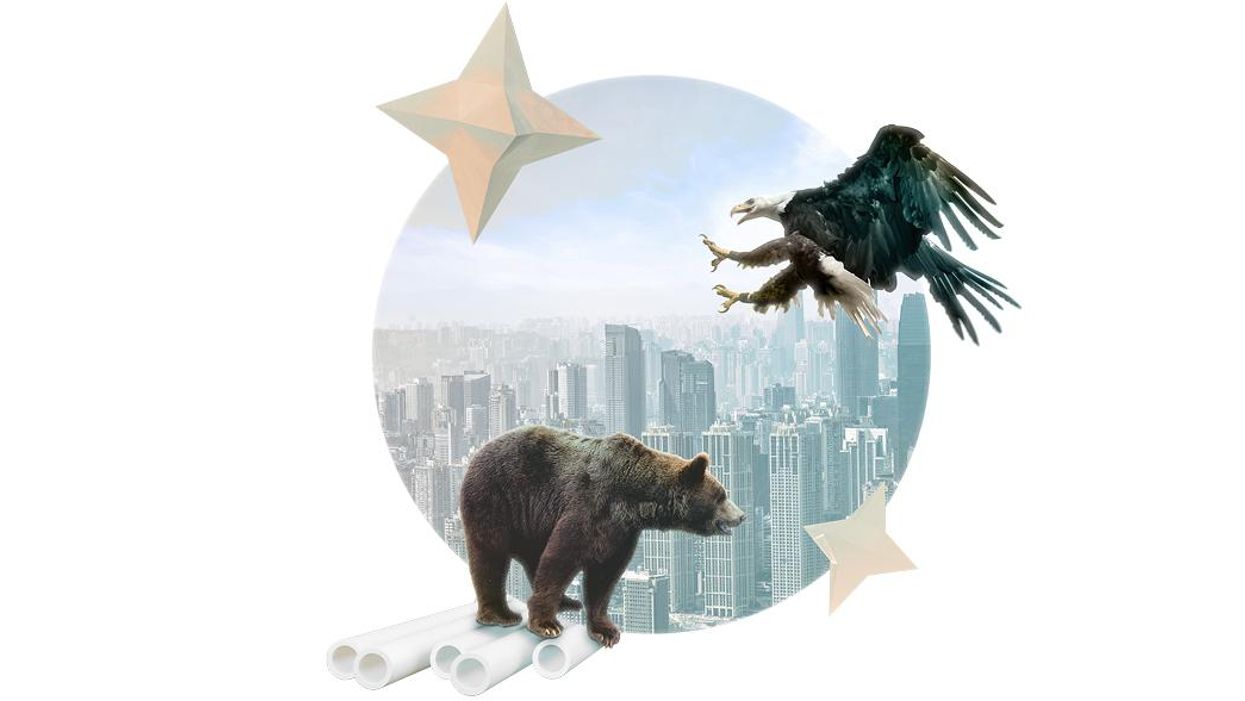
Episode 6: Economic weapons & fallout of the new Cold War
Listen: Today, the US/Russia relationship is at a new low as war rages in Ukraine, and a new Cold War is growing. But the old Iron Curtain existed to divide Europe. This one is uniting it, and further isolating Putin’s Russia. On the latest episode of Living Beyond Borders we’ll discuss what that means for America, the global economy, and your bottom line.
Listen: In 1985, after four decades of standoff between the world's biggest superpowers, US President Ronald Reagan had a private conversation with the Soviet leader, Mikhail Gorbachev. Reagan asked him, "What would you do if the United States were suddenly attacked by someone from outer space? Would you help us?"
"No doubt about it," Gorbachev responded.
That moment didn't magically end one of the greatest political power struggles in history, but it did begin to melt the ice.
Today, the US/Russia relationship is at a new low as war rages in Ukraine, and a new Cold War is growing. But the old Iron Curtain existed to divide Europe. This one is uniting it, and further isolating Putin’s Russia.
On the latest episode of Living Beyond Borders we’ll discuss what that means for America, the global economy, and your bottom line. This conversation is moderated by Shari Friedman, Eurasia Group’s Managing Director of Climate and Sustainability, and features Ian Bremmer, President of Eurasia Group and GZERO Media, and Steven Wieting, Chief Investment Strategist and Chief Economist at Citi Global Wealth Investments.

Shari Friedman
Eurasia Group’s Managing Director of Climate and Sustainability

Steven Wieting
Chief Investment Strategist and Chief Economist at Citi Global Wealth Investments

Ian Bremmer
President of Eurasia Group and GZERO Media
















